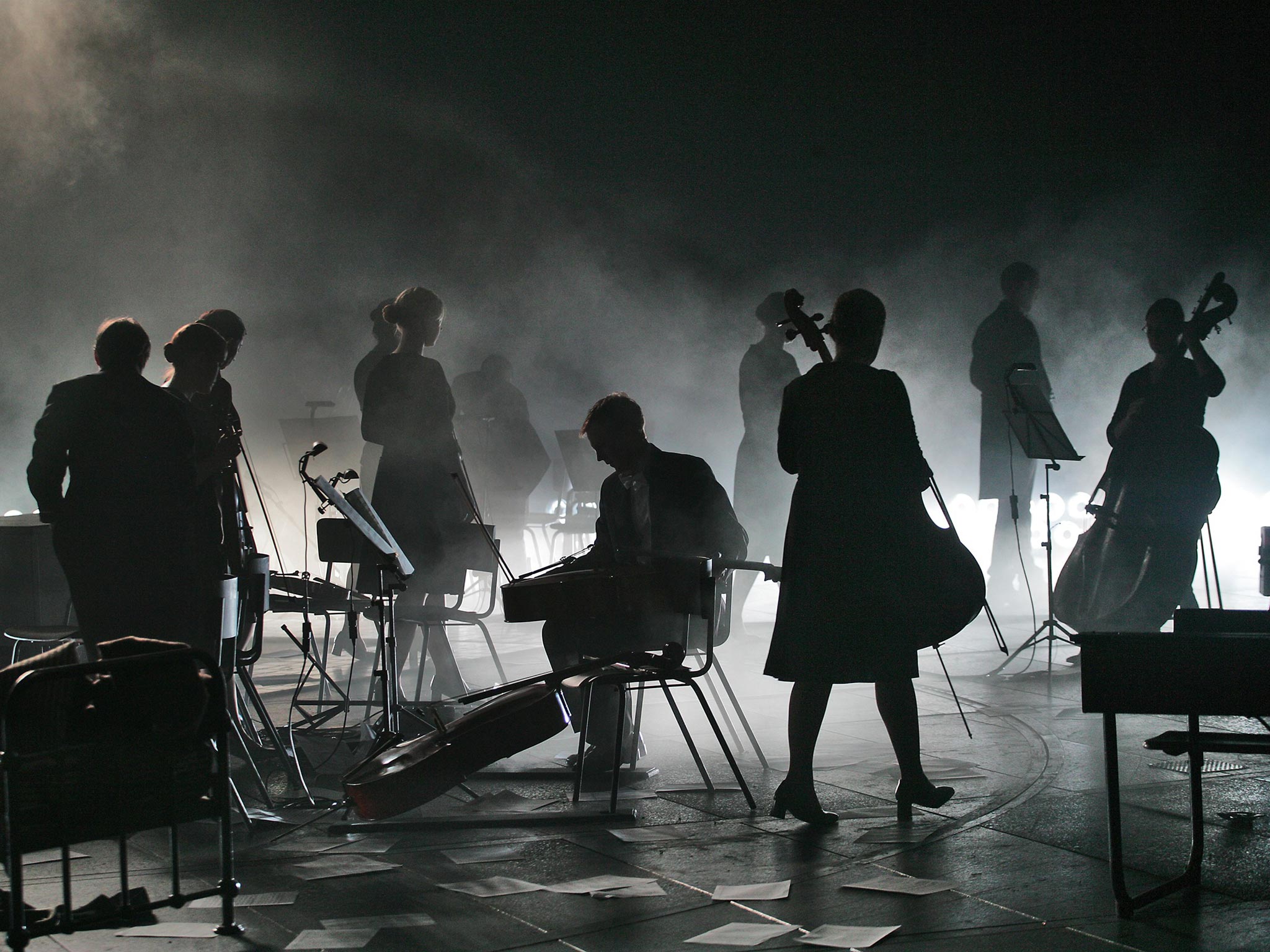Crowd surfer carried away by Handel thrown out of alternative Proms

When Tom Morris launched the Bristol Proms, he invited audiences to participate with enthusiasm in a festival which would destroy the stuffy conventions of traditional classical concerts.
But now the War Horse director has been forced to accept a ban on “crowd-surfing”, after a leading scientist took the invitation to respond physically to Handel’s Messiah rather too literally.
Bryn Terfel, violinist Lisa Batiashvili and Will Gregory of Goldfrapp are among the artists who will perform later this summer at the Bristol Old Vic, where Morris, the artistic director, has created an “accessible and informal” alternative to the BBC Proms.
Before a performance of the Messiah, Mr Morris, who directed War Horse at the National Theatre, invited the audience to bring beer into a standing “mosh pit” in front of the stage and delivered the Bristol Proms rules: “Clap or whoop when you like, and no shushing other people.”
The Messiah mosh-pit included Dr David R Glowacki, a Royal Society Research Fellow and visiting scientist at Stanford University, an expert in non-equilibrium molecular reaction dynamics.
According to witnesses, Dr Glowacki responded to the crescendo of the “Hallelujah Chorus” by lurching from side to side, raising his hands, whooping and then attempting an ambitious crowd-surfing manoeuvre.
Other audience members, who found Dr Glowacki a distraction, took matters into their own hands and physically ejected him from the arena.
“He got very over-excited,” said Mr Morris. “It was the first eviction of a classical concert audience member by another member we’ve found since the 18th century.”
Some audience members have now urged the director to set clear etiquette guidelines for future concerts.
Whilst Mr Morris is reluctant to re-introduce codes of behaviour he believes have stifled classical concerts for too long, he accepts that crowd-surfing will not be tolerated.
“The Bristol Proms are contributing to a ground-breaking way of thinking which will pave the way for a new kind of classical concert. But by allowing an audience to respond in whatever way they want, you also allow an audience to self-regulate, as we discovered.”
However, Dr Glowacki believes that Mr Morris has failed to demonstrate the courage of his convictions. “Classical music, trying to seem cool and less stuffy, reeks of some sort of fossilised art form undergoing a midlife crisis,” said the lecturer.
“Witness what happened to me when I started cheering with a 30-strong chorus shouting ‘praise God’ two metres from my face: I get physically assaulted, knocked down to the floor and forcibly dragged out by two classical vigilantes.
“Neither the bourgeoisie audience nor their curators (eg Tom Morris) really believe what they say. You’re free to behave as you like, and it’s comforting to think that you have that freedom, but it’s only available to you so long as you behave correctly.”
Dr Glowacki denied that he was drunk, saying: “This may be a consequence of me being American, but I can quite easily be provocative without the need to be inebriated.”
Mr Morris said Dr Glowacki would not be banned and hopes he will return. “David was investigating what the nature of the rules are, using the skills that make him an extraordinary scientist – and for some in the audience, a slightly irritating one.”
But Mr Morris, brother of satirist Chris Morris, hopes violence will not erupt during next month’s performance of 4’33”, John Cage’s notorious “silent symphony”. Chinese pianist Ji Liu will “perform” work which requires the musicians not to play their instruments for its duration.
“I’ve got no idea what will happen,” Mr Morris said. “Four minutes and 33 seconds is long enough for unexpected things to happen and for an audience to reflect on and react to them.”
The Bristol Proms, now in their second year will continue to challenge the “elitist, unwelcoming atmosphere surrounding classical,” said Max Hole, the head of Universal Music International, Morris’s partner in staging the event.
Hole caused controversy when he told the Association of British Orchestras that musicians had to change the way they dress, become more excited when they play and to encourage the audience to applaud whenever they want, in order to attract a new crowd.
Subscribe to Independent Premium to bookmark this article
Want to bookmark your favourite articles and stories to read or reference later? Start your Independent Premium subscription today.

Join our commenting forum
Join thought-provoking conversations, follow other Independent readers and see their replies